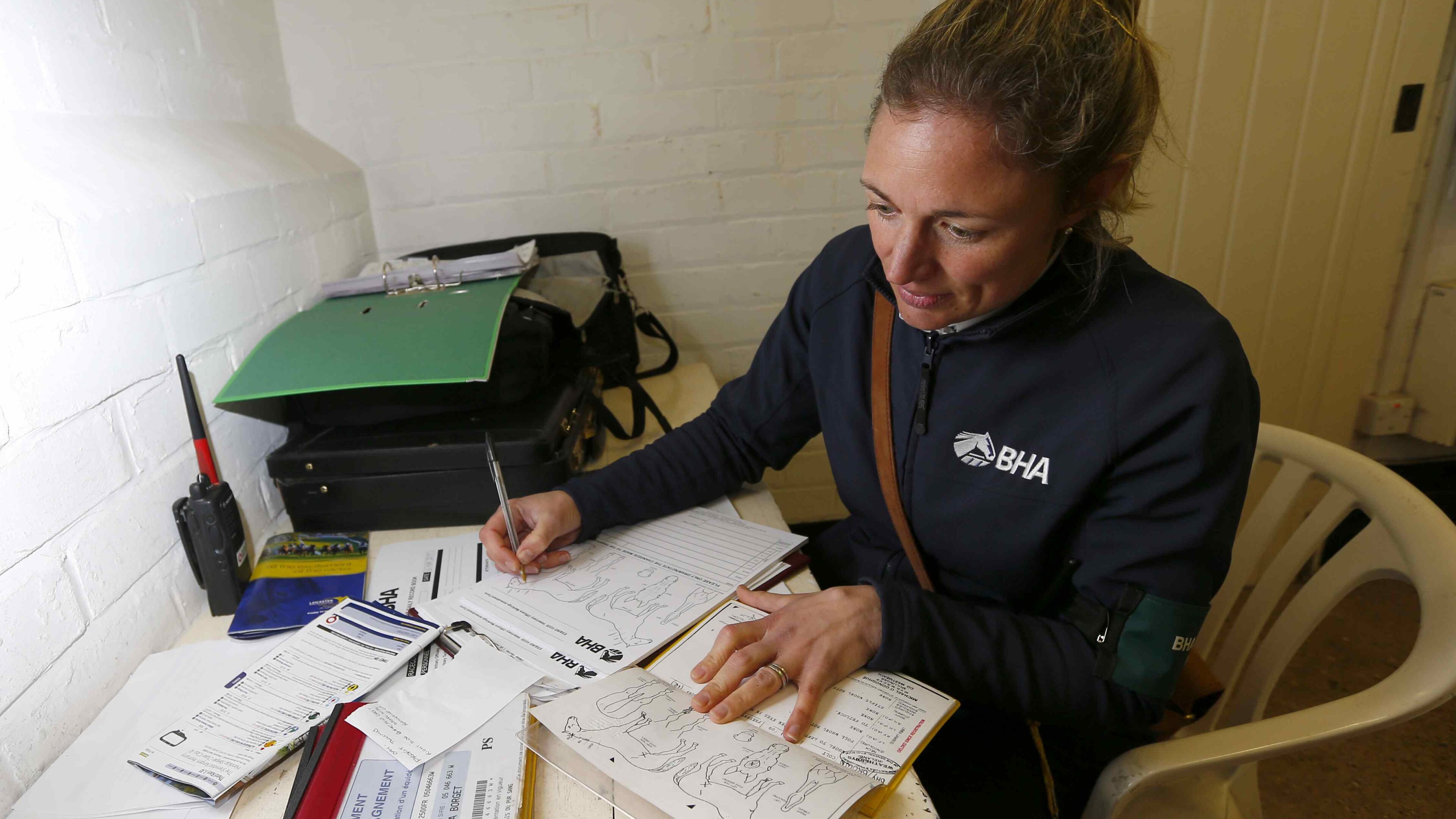

“My advice to anyone considering applying to vet school is to read scientific journals, learn as much as you can.”
Sally Taylor is Head of Equine Health and Operations and here is her career story.
“I was a ‘pony-mad’ child from when I can first remember. I was born in London and started my riding career at a small riding stables. When I was 7 years old my family moved to Buckinghamshire and my parents eventually relented and acquired a very old pony for me and my (3) sisters to ride. I spent every spare moment reading any horse-related literature that I could get my hands on and re-creating the Hickstead Derby course in the back garden (my parents put a limit on jump size when my sister fell and broke her arm attempting the ‘Derby Bank’). One summer we discovered Glorious Goodwood on TV and we were hooked! The ponies (more freebies had been acquired) were overnight transformed into racehorses in our imagination and we began practising riding with short stirrups.
As a teenager I started riding out for a local racehorse trainer and spent my weekends and holidays exercising racehorses and working as a racing groom. I went to Vet School with the sole idea of working with horses and when I graduated from Cambridge Vet School in 2002 I started work in equine veterinary practices. I completed my post-graduate Certificate in Advanced Equine Practice (Equine Practice) in 2012 which allowed me to consolidate the knowledge that I had obtained through working in equine veterinary practice.
Whilst I was in practice I particularly enjoyed working with racehorses and at the local Point-to-Points and I jumped at the opportunity to join the BHA as one of their team of Veterinary Officers in 2016. This role allows me to help ensure and improve standards of welfare amongst the entire cohort of racing thoroughbreds whilst also being part of the sport that I love.
My advice to anyone considering applying to vet school is to read scientific journals. Ensure that you understand the societal impact of veterinary practice in addition to the core desire to safeguard the welfare of the individual animal.”

Our website uses cookies to distinguish you from other users, help us provide you with a good experience and analyse our traffic. We have to collect some data while you use this website. We need this to make the site work, to keep it secure, and to comply with regulations.
We'd also like your consent to collect data while you use this website to help us understand if our website is working well and to learn what content is most useful to visitors. You can accept or reject our analytic cookies (including the collection of associated data) and change your mind at any time. Find out more in our Cookies Policy.